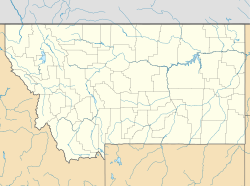UNDERC-East
UNDERC-East [1] encompasses 7,500 acres (30 km2) (land = 6,150 acres (24.9 km2) and lakes/bogs/streams = 1,350 acres (5.5 km2)) lying at 46°13′N89°32′W / 46.217°N 89.533°W along the state line of Wisconsin (Vilas County) and Michigan (Gogebic County). It includes a land area of 6150 acres and 30 lakes and bogs.
UNDERC-East hosts a variety of habitats for research including:
- Dystrophic bogs
- Permanent and vernal ponds
- Lakes of various shapes and sizes
- Marshes
- Sluggish headwater streams
- Mixed deciduous and coniferous forest
- Deciduous forest
UNDERC-East also serves as the National Ecological Observatory Network [2] (NEON) site for increasing the understanding of how forest management impacts ecological processes in the Great Lakes Region (Domain #5). [3]


